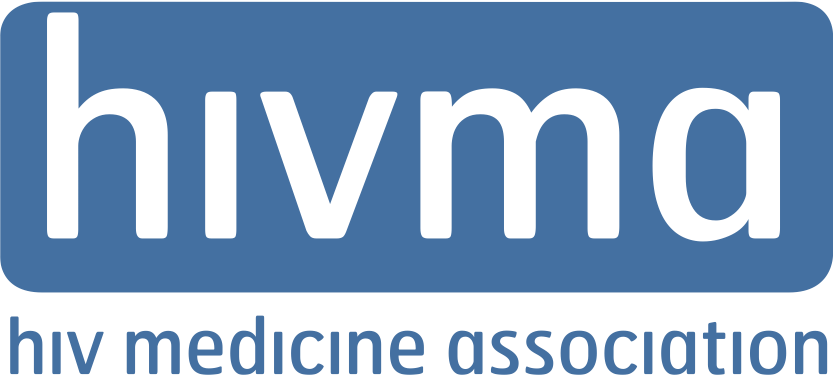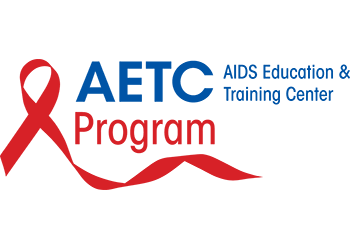HIV Medicine Association Continuing Medical Education Resources
HIV Medicine Association has compiled HIV training opportunities for medical students and clinical fellows. Some may require fees, including registration, travel and/or housing costs.

HIV Medicine Association has compiled HIV training opportunities for medical students and clinical fellows. Some may require fees, including registration, travel and/or housing costs.

HRSA’s AIDS Education and Training Center (AETC) Program supports national HIV priorities by building clinician and care team capacity and expertise along the HIV care continuum. The AETC Program is a national network of leading HIV experts who provide locally-based, tailored education, clinical consultation and technical assistance to healthcare professionals and healthcare organizations to integrate high quality, comprehensive care for those living with or affected by HIV.

In September 2020, Disease Intervention Specialists (DIS) across the United States gathered for a virtual summit to address the expanding roles of DIS. Hosted by the CAPTC in collaboration with the California Department of Public Health (CDPH) Office of AIDS (OA) and the Sexually Transmitted Diseases Control Branch (STDCB).
The summit touched upon an expansive range of subjects, including motivational interviewing techniques and medical mistrust in DIS work. View videos and download resources.
Developing cultural humility involves understanding the impact that unconscious bias and medical mistrust and distrust have on client engagement.
Being able to recognize and address this can improve your relationships with clients.
Join California Prevention Training Center Capacity-Building Assistance Specialist Deborah Wyatt-O’Neal to learn how cultural humility and unconscious bias affect client engagement in care. Discover techniques to address biases and practice humility to better support clients and honor their humanity.
Utilize the player tools below to navigate through the course.
On hold due to COVID-19. Will resume as soon as it is safe to do so.
The course demonstrates the intersectional link between HIV, Social Determinants of Health (SDH), and Structural Interventions (SIs). It provides a structured framework and necessary tools to address the SDH and structural barriers impacting the communities they serve.
The conditions in which people are born, live, learn, play and age greatly influence the health of individuals and communities. By critically examining the role of neighborhood conditions, education, income/wealth, and the socio-political climate, this training will strengthen participants’ understanding of the social determinants of health and their roles in shaping health outcomes of diverse populations.
Examples of programmatic, structural, and policy interventions will be discussed to illustrate how public health departments, advocates, and policymakers can effectively address HIV-related SDHand advance equity for populations and communities that have experienced persistent barriers to good health and high rates of HIV infections.
As individuals, we have our own cultural and life experiences which impact how we view the world, how we make decisions, and how we view others. As providers, it is critical that we are aware of our own personal views and how they may contrast with the beliefs, cultures, and goals of those we serve. These differences can adversely affect our ability to understand the needs of our clients, reach them effectively, and engage them in care and prevention services.
This training provides an overview of the concept and principles of cultural humility, which include lifelong learning and critical self-reflection, recognizing and challenging power imbalances, and institutional accountability. Practicing the principles of cultural humility can improve our ability to meet the diverse needs of the multicultural communities we serve.
This training is appropriate for anyone (direct service provider to policymaker) who is interested in working to address health disparities in their service area.
On hold due to COVID-19. Will resume as soon as it is safe to do so.
Personal and professional boundaries are an integral part of any provider-client relationship. This is particularly true for those in the medical and social service delivery fields. Boundaries represent invisible structures imposed by legal, ethical, and/or professional standards. The ability to set and maintain boundaries is critical to ensure effective and successful interactions with clients as well as colleagues.
This training explores the importance of personal and professional boundaries. We look at the ways in which maintaining good boundaries improves client relationships and builds self-sufficiency. We define what constitutes personal versus professional, and legal versus ethical boundaries. Through didactic learning and experiential exercises, participants work to identify the most appropriate actions in situations that may arise when working with clients or colleagues.
This training is appropriate for any organization that has experienced challenges with boundaries or would like to proactively develop a boundary-aware culture.
On hold due to COVID-19. Will resume as soon as it is safe to do so.
The Strengths-Based Counseling Model (SBCM) has been used effectively in different settings to promote overall health. This model or approach marks a shift from a traditional deficit-based perspective to one which recognizes clients’ strengths and competencies. It has been successfully implemented via ARTAS to link clients living with HIV to medical care.
This two-day training describes the SBCM and how it can be applied to a variety of concerns and settings related to HIV prevention and care. The principles, techniques, and application of this approach are described, demonstrated, and practiced.
This training builds provider skills in the effective use of the SBCM so they may help clients reduce their risk and promote their engagement and retention in services. The training is appropriate for any community-based organization or health department interested in the application or integration of a strengths-based approach into their service delivery model.
On hold due to COVID-19. Will resume as soon as it is safe to do so.
Stigma has been a major obstacle in combating HIV since the beginning of the epidemic. The communities in the United States disproportionately impacted by HIV are those historically impacted by other types of stigma based on factors such as race/ethnicity, sexual orientation, gender identity, age, and socio-economic status.
A comprehensive response to stigma is needed in order to impact current health disparities and improve engagement at all levels of HIV treatment and care.
This course examines the sources and repercussions of stigma. It focuses on changes providers can make to respond to the impact that stigma has on risk, prevalence, and access to services.
This training is appropriate for any providers working in HIV prevention or treatment.
On hold due to COVID-19. Will resume as soon as it is safe to do so.
Men who have sex with men remain the largest population impacted by HIV in the United States. Disparities in infection rates, as well as access to treatment persist, particularly among men of color.
This course highlights cultural competency as a foundational skill when working with gay, bisexual, and other men who have sex with men. The training enhances providers’ ability to recognize the impact of social factors, such as homophobia, racism, and stigma, on HIV risk. It explores issues of sexual health and spirituality and introduces a holistic wellness model to engage and support men who have sex with men.
The course is appropriate for any organization or provider working with men who have sex with men.